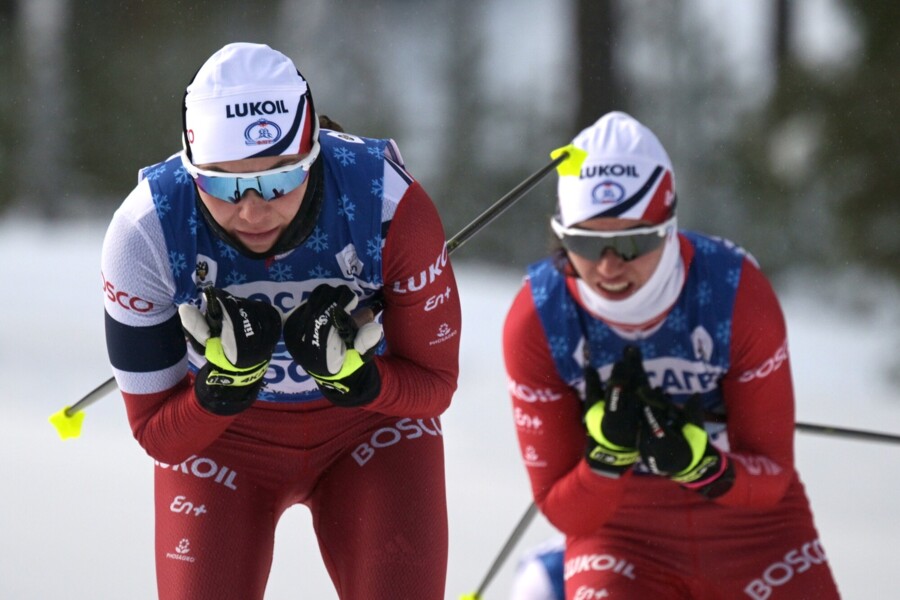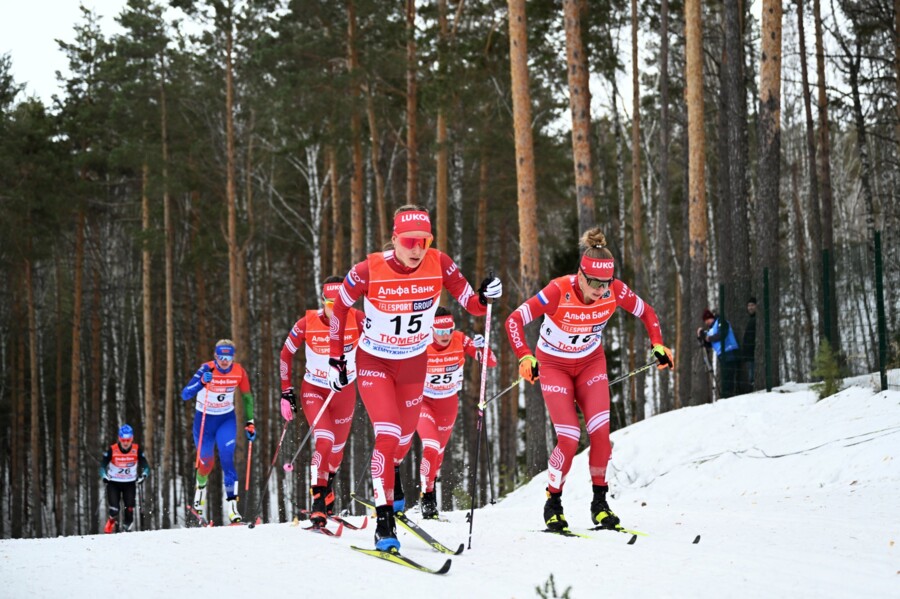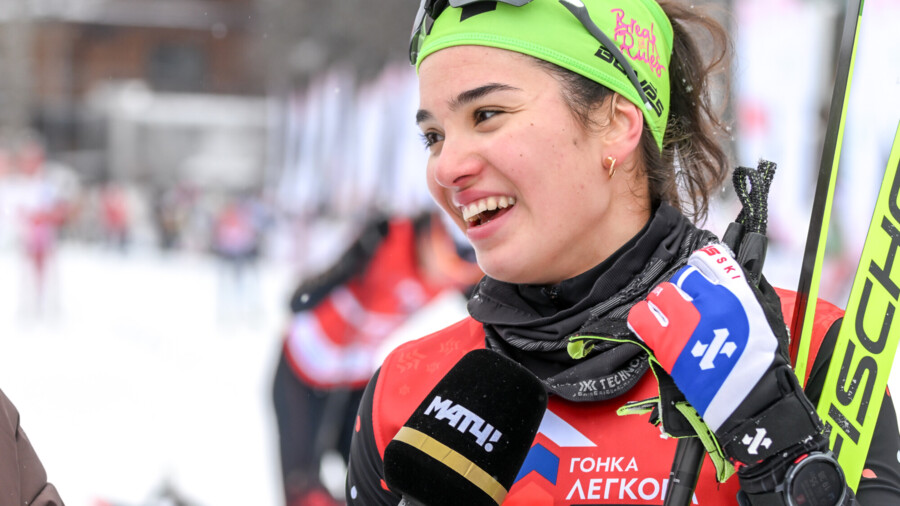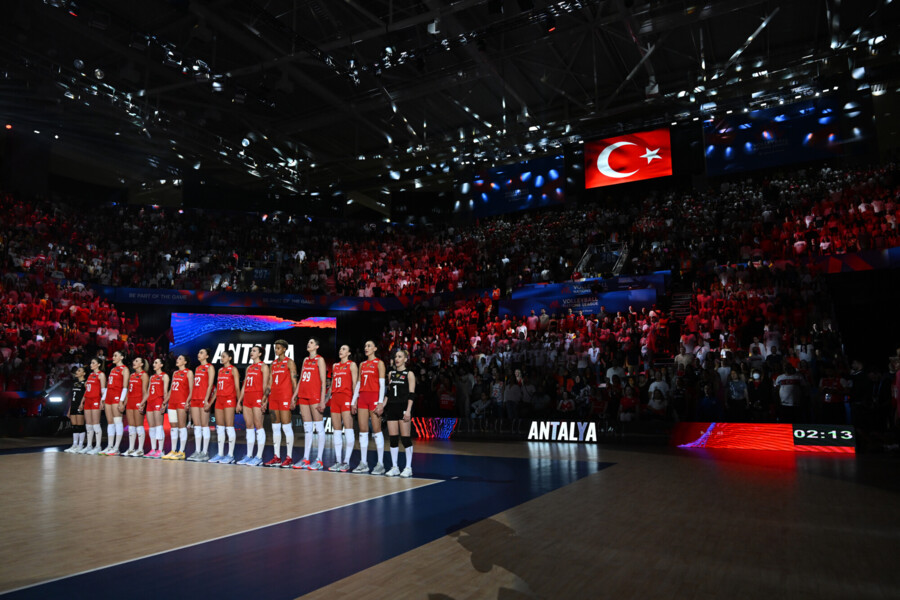In my last columns on the site, I spoke in a very unflattering manner about the current Olympic movement. And that professional sport needs an upgrade of approaches, new ideas.
Are you criticizing? Offer. That’s exactly what I’m doing today. And yes, I am aware that my proposals are modest and do not amount to replacing the entire system which, for many years, was built around participation in the Olympic Games. Yes, I’m not pretending – a new house is built from bricks. Here are mine.
Change the selection system
Probably the most popular distance in women’s skiing is the ten freestyle at Spartakiad in Tyumen. Yes, the same one where I lost that day against the brilliant Kuleshova. But she won against more than 130 other girls.
Let me remind you that the competition is called the “Spartakiad of the Strongest”. The name itself contains the idea: a competition between the best. What were these girls doing that day on the ski slope who ended up losing half a minute to the winners over every kilometer of distance? Maybe after talking with us they noticed some important elements of preparation and in the next race they will be much closer, and maybe even overtake? Of course not. There is no interaction between, so to speak, the top ten leaders and the bottom hundred. We don’t cross paths at all, except that sometimes we bump into each other by chance during training.
I propose to make the system similar to the one that works successfully, for example, in football. At the start you race exclusively in the regional league. You collect prizes and become the idol of local fans. We have a sport where there are no records, and you can only understand who is better – Klebo, Bolshunov or Pushkin – in a face-to-face meeting. In the meantime, let the fans grind their teeth in their arguments over who is stronger.
Won in regional competitions and scored the required number of points? Only then do you reach the “major league”. May the very fact of selection for the country’s main competitions become a motivation, a symbol of success. As it was before: getting into the “team at large” and into the “team for the Olympics” is a whole new height of barrier that must be overcome. Indeed, there are 20 to 25 girls on the national team, but only eight are allowed to participate in the Olympics.
I am not proposing that only the top eight take part in the Spartakiad of the Strongest, in the national championship (although such a tournament would also be worth considering). Let 20 “collectors” run – we’re already the best, that’s why we were selected, right? Plus ten winners of regional competitions. 30 and 130 – is there a difference? I only see that costs will decrease and it will become more convenient for everyone: from television to judges.
Interact with other sports
We have a strange and ridiculous organization: ski races within the same federation as ski jumping and even snowboarding. But you would have to be completely blind not to see that cross-country skiing most overlaps with biathlon and ski mountaineering. Some athletes, especially female athletes, succeed in two events. But we have three different sports federations, different calendars and even very different competition venues. We don’t meet at all at competitions, even though training camps often take place in the same places.
Question: why? Why, for example, in one of the best ski and biathlon complexes in the world, “The Pearl of Siberia”, should not the competitions of skiers and biathletes take place simultaneously: at 10 o’clock, skiers run , at 11:30 a.m. in the morning the biathletes, at 1 p.m. the skiers, etc. Now it is impossible, if only because of the same 130 starters. But if there are 30 of the best, we will be able to deal with it. Economy? Obvious. If only because television will not have to be deployed in two different places – and this is almost the main item of expenditure, at least in skiing and biathlon.
Plus, we skiers need it more. For biathletes, at least a few stadiums during the season delight the eye with crowded stands. We don’t have them, alas!
If people didn’t go out at all, we might say, “Oh, now everyone lives on their phones, we can’t get them out of the house in the cold!” But it turns out you can qualify for biathlon, but you can’t watch skiing. And it doesn’t matter how many Olympic champions there are.
Not measured by medals, but by the popularity of the athlete and the sport
Entertainment, attendance and television audiences in general should become the criteria by which to assess the success of a particular sport. Think about it: who cares, in the grand scheme of things, how many medals did a particular region win at the Russian Championships? If Bolshunov were a “region of Russia”, it would occupy fifth place in this ranking. Yes, and I would probably be in the top ten.
At the same time, we are not in 1974: it is relatively easy to calculate and measure how many people watched broadcasts of the same skiathlon, at what age and in which regions. If cross-country skiing was watched by, say, 10,000 girls and boys in Kamchatka or Arkhangelsk, it means that I am doing very well, that I am coping with the task. And if not, you need to think about how to change it. Me too.
Listen, we are entertainment professionals, our job is to entertain the public. And at the same time, promote simple truths to the younger generation: do you want to be rich and healthy? Play sports from childhood! Won’t you become a champion? It’s no big deal, but you will get a strong body, endurance, learn discipline and the ability to do something without being able to!
Perhaps some things are self-evident, but adolescents need to repeat them, demonstrate them, instill them in them. We need not only television exposure, but also opportunities to connect with fans (especially younger ones), and we need time for that.
There is no need to meet in stuffy rooms: it is boring and the risk of getting sick is higher. It is best to hold a demonstration training session in the air. Example? Last year I joined Alexander Legkov, the informal “leader of our ski pack” – we went for intensive exercises at a children’s summer camp. I got the impression that the children were interested in what they remembered. Like me. But there is a nuance: it is an optional social charge, you have to choose a time each time, modify the training plans, negotiate with the coach (thank you Egor Vladimirovich for your understanding!).
Why not make these things obligatory for all professional athletes under state contract, include them in the training plan in advance and agree them in advance with TV? Why did we, skiers and biathletes, easily get up at the Legkov race in February and easily go to open training with hundreds of amateur athletes? Because it is thought out and well organized! Let’s hold five races instead of six at the Russian Championship, but devote one or two days entirely to “demonstration performances”. I know six months in advance where and what race will take place – what’s the problem in organizing an open lesson for young athletes among themselves?
Focus on fun and unpredictability during international competitions
The “ski experts” laugh: who will now race with the Russian athletes? Iranians and North Koreans?! A-ha-ha-ha!
Why not – if we make a mixed relay race, where the champion of Russia runs in a team with the fifth number of the Iranian team, and the fifth number of the Russian team runs with the champion, otherwise of all China , then at least the ten millionth Harbin?
Two things matter in sport: entertainment and unpredictability. And the traditions that we must follow exclusively with Norwegians and Swedes are aimed at a relatively small group of aesthetes. People who consider themselves real fans, but who, unfortunately, are statistically nothing more than an audience measurement error. Any sport, any competition can be promoted. Look at world-leading Turkish women’s volleyball: Has anyone heard of Turkish volleyball ten years ago? This is what should be an example, especially for girls.
***
Critics will say: “Let Stepanova embody all these ideas. » Naturally, I am ready to participate in whatever is offered – as an active athlete. As an athlete who, from the beginning of his career, tried not only to perform, but to perform so that they would remember me, so that they would talk about me.
I have long and firmly believed that an athlete’s job is to work on their image. Yours and your sport. And for that, you not only have to win, but also work with the fans and with television. This should not be a one-off event, nor according to the mood, but systematically emanate from the organizers and sponsors of the competition. And this will not affect sports results in any way – those who have talent, discipline and the desire to win will win. And during international competitions too, when we return.
More sports news in our telegram channel .
Source : MatchTV
I am Sandra Jackson, a journalist and content creator with extensive experience in the news industry. I have been working in the news media for over five years. During this time, I have worked as an author and editor at various outlets producing high-quality content that attracts readers from different demographics.






